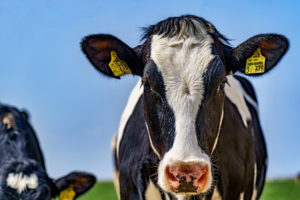 Ew! I know. You were probably thinking, “Well, this is a little too personal.” But I promise this is going to be educational! So, sit back and hold on to your tukus (especially if you are lactose intolerant!) We’re going to find out why milk makes a person so gassy – and a whole lot of other things too.
Ew! I know. You were probably thinking, “Well, this is a little too personal.” But I promise this is going to be educational! So, sit back and hold on to your tukus (especially if you are lactose intolerant!) We’re going to find out why milk makes a person so gassy – and a whole lot of other things too.
A1 vs. A2 Milk
What is A1 Milk?
Did you know there were two different types of cow’s milk? Yes, there is a type that is considered A1 and another considered to be A2. Type A1 is the typical milk and milk products you find in your local stores – yes even the “organic” and “grass fed” kind. A1 describes the type of protein found in the milk. Within that protein, you have what’s called casein, or more specifically beta-casein. This A1 beta-casein protein causes a narcotic like effect on the body because it is actually a genetic mutation. This mutation produces an opioid-peptide called BCM-7 upon digestion of the milk. This peptide is actually the culprit that causes many to think that cow’s milk isn’t healthy.
Ok, do you follow me so far? Alright, let’s continue. BCM-7 stands for Beta-casomorphin-7. Do you recognize any word in there that may be familiar? Morphin, morphine, opioid, opiate….so yes, BCM-7 can cause some issues. Although more studies are being done, so far, BCM-7 has been linked to things such as diabetes type 1 which occurs when the body can’t or doesn’t produce enough insulin for the body. That can cause some serious harm and this type of diabetes doesn’t come from eating “too many sweets”. It is a serious malfunction of the body and it often involves children. BCM-7 has also been linked to autism, schizophrenia, lactose intolerance and other gastrointestinal issues, possible heart disease, and SIDS which stands for “Sudden Infant Death Syndrome”. Why SIDS? Because often times processed cow’s milk is in baby formula. That formula will more than likely contain conventional cow milk. I’d encourage you to do more research if any of these things have peaked your interest. Just like anything, there is research both for and against these effects.
How did it get in our milk?
Remember when I said that A1 is a genetic mutation? Well, while we as consumers, after reading and doing some research (I do hope every  now and then you get curious about the food you buy in mass) may think it’s bad, but for producers, the mutation is great! This mutation helps their bottom line because it causes the cows to produce more milk without having to increase overhead costs. More milk, less overhead, more profit. And in business, that’s a great thing. Now, every cow doesn’t have this mutation, so which ones do?
now and then you get curious about the food you buy in mass) may think it’s bad, but for producers, the mutation is great! This mutation helps their bottom line because it causes the cows to produce more milk without having to increase overhead costs. More milk, less overhead, more profit. And in business, that’s a great thing. Now, every cow doesn’t have this mutation, so which ones do?
The genetic mutation can be found in the common commercial milking cow breeds: Holsteins, Friesian, and Ayrshires. It is said that one of these cows carried the mutation years and years ago. Because of the benefit of more milk production, those cows were then bred with others. With that breeding, just like any other genetic Punnett square, you can have cows producing our milk that are all A1 genetic mutations, a mix of A1 and A2 (where you will still have the A1 effects), or all A2.
What is A2 milk?
A2 milk is milk without the genetic mutation effects. The cows that produce this milk have not been cross-bred in any way with one that has the mutation. This milk, upon digestion, doesn’t give off the BCM-7 opiate type effects. This eliminates the links to the ailments mentioned above and being gassy.
Where can I find it?
 Just about every animal that is not one of the cows listed above has A2 milk, that’s including us! As the old adage goes, “Breast is best!”. “Old” cows or more commonly called, “Heritage Breed” cows like Jerseys and Guernseys, goats, and sheep are going to be animals that we are most likely to drink milk from. Also, because they are so close to human milk in structure, these are often better for babies as well.
Just about every animal that is not one of the cows listed above has A2 milk, that’s including us! As the old adage goes, “Breast is best!”. “Old” cows or more commonly called, “Heritage Breed” cows like Jerseys and Guernseys, goats, and sheep are going to be animals that we are most likely to drink milk from. Also, because they are so close to human milk in structure, these are often better for babies as well.
We know where to get human milk from, but what about the others? Many smaller farms, homesteaders, specialty grocery stores, and health food stores will more than likely have some sort of A2 milk. You will probably pay a premium for it though. These animals, while they may produce great for their size, they probably won’t produce as much as the A1 cows. So just beware.
What about the taste?
I have had both cow’s and goat’s milk. I’ve also have had cow’s cheeses, goat cheeses, and sheep cheese. I must say, my favorite is fresh goat. If not properly done, or if it’s been out or warmed, it will taste a little um….”goaty”. Sheep cheese is a very nice flavor, it’s not as strong as goat. And well, cow products are all I’ve ever known until I became an adult that could afford “nice things” LOL I would say that since everyone has different taste buds, you should probably try it for yourself. Often times at specialty stores, they will let you sample before you buy.
Well, that’s it! See, it wasn’t that bad. If you want to know more, do a little research. It’s out there. But, now you know why you just may have a little tootin’ in ya bootin’ when you drink cow’s milk.

Alright, have a great one!